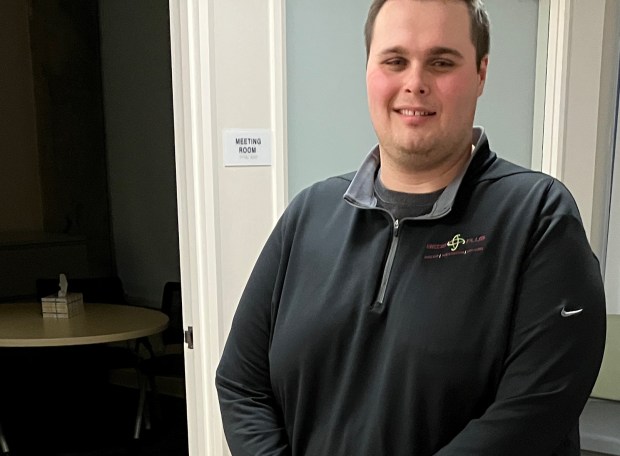After years of conducting annual counts to gauge how many people in the area are experiencing homelessness, the team from La Grange-based BEDS Plus have a good idea where to look.
“We come up with hot spots, where we’ve either met with people in the past or areas where we think people might be,” said Zac Catrambone, BEDS Plus manager of street outreach.
Those hot spots include hospital emergency rooms, libraries and gas stations, as well as less obvious places, Catrambone said.
“Twenty-four hour laundromats, park district buildings, or parking garages, like the La Grange Parking Garage on the third floor,” he listed. “In the winter they rope off that top deck and it’s heated up there. (If) they’re not able to go to any shelter, or they don’t want to go to a shelter … it’s a place where they can get out of the elements.”
Catrambone was advising volunteers taking part in the annual Point in Time Count on Jan. 29. Sponsored by the Alliance to End Homelessness, the effort serves as a “homeless census,” on both a national and a local level, giving various organizations solid information on how many people in the area are experiencing homelessness and where they are.
“The Chicagoland area started doing this in about 2013,” Catrambone said as volunteers were assigned to areas throughout the west and southwest suburbs. “Our areas that we are responsible for tonight are basically La Grange, La Grange Park, McCook, Hodgkins, then we go down to Oak Lawn, Chicago Ridge, Bridgeview, Summit, Justice … all the way down to Orland Park.”
Catrambone said the amount of people contacted during the Point in Time count has varied from year to year, “especially during years where it’s really cold, people tend to go to warning centers and might not be found.”
While the BEDS Plus home base is in La Grange, the organizing point this year was at the nonprofit’s Linda Sokol Francis Summit Service Center at 7666 W. 63rd Street in nearby Summit, Illinois.
Opened in 2023, the center in Summit has 18 beds and provides acute and post-acute medical care for homeless people who are too ill or vulnerable to recover on the street, but don’t qualify for further hospitalization or nursing home care.
Besides the La Grange facility and the Summit Service Center, Beds Plus also has a triage shelter on Cicero Avenue in Chicago, and provides temporary housing at the American Inn in Countryside.
The group also has several “bridge units” that are leased in the agency’s name where people can stay until they are matched to a housing program. Catrambone said that these units were typically used for families and people fleeing domestic violence.
BEDS Plus had 22 volunteers out for the Jan. 29 count, including four people with the lived experience of being housing challenged.
“It was a good event last night,” Catrambone said the following day.
The volunteers began canvassing their territories around 6:45 p.m. and finished around midnight, making contact with eight people and interviewing four of them, who BEDS Plus representatives will follow up with.
Point in Time also provided an opportunity to check in with people who’ve been on the streets for a while, including one person near La Grange Village Hall who “we know pretty well.”
“The person at Village Hall was usually in the parking structure, but was outside today, ” he said.
Once BEDS Plus is able to make contact, they can offer help.
“I do housing paperwork for them and try and connect them with programs throughout suburban Cook County,” said Rick Maltese, who’s been with BEDS Plus for four years as an assessor. “So the paperwork gets uploaded into our system and they become eligible to get the program matches.”
Volunteer Jack Rudzinski said the importance of gauging the extent of homelessness is vital because it illustrates the need for funding and programs nationwide.
“The point is to determine funding for the next year’s homeless programs,” he said. “Hey, this is how many homeless we have, and this is why we need to allocate funding. So it’s super important to have people out here doing this, as many as we can out canvassing, looking for folks. Not only are we helping the folks that we find tonight, but we’re also helping the entire country by making the government aware of how widespread the problem is, and how much needs to be done.”
Hank Beckman is a freelance reporter for Pioneer Press.




